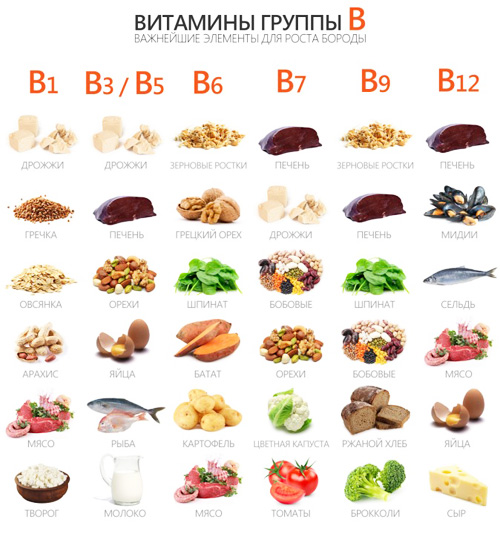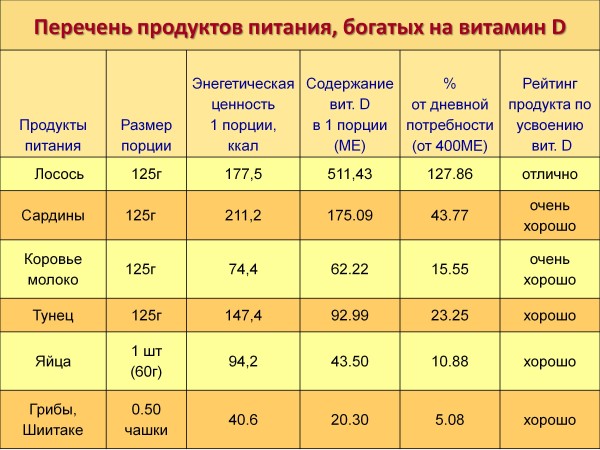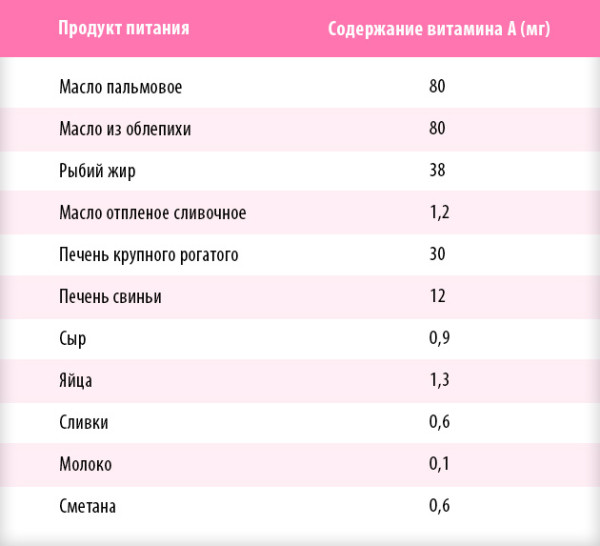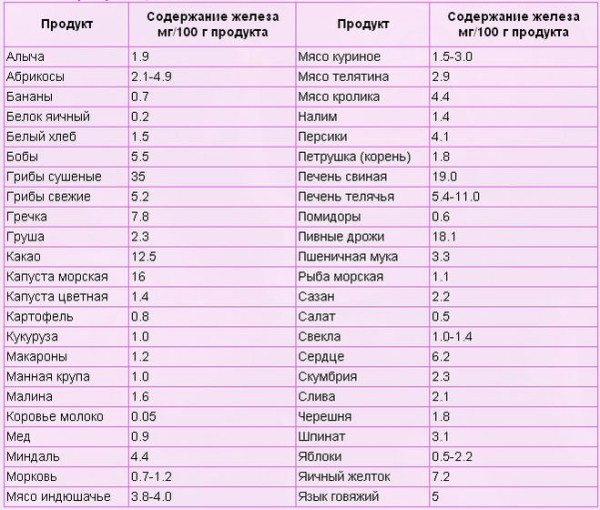How is the lack of vitamins and minerals manifested
An organism can be considered healthy only if all its internal systems function smoothly and without failures. And this is possible only with an absolute balance of vitamins and minerals. Unfortunately, few people can boast of iron health now, even the most inveterate athletes experience ailments. In this article, we will analyze in detail why there may be a lack of vitamins in the body even with strict adherence to proper nutrition, what consequences the deficiency is fraught with, and how to understand that there is a vitamin deficiency.
Content
Lack of vitamin B
Vitamin B is a whole group of vitamins that are responsible for the proper functioning of the nervous system, for energy metabolism, they also support the work of the digestive tract, enhance resistance stress and contribute to the normalization of blood sugar levels. You can now see B vitamins sold separately as an additional source. It is worth saying that the full-fledged work of each element occurs exclusively when the whole group is assembled, and not separately. The strength of immunity, cell multiplication and the growth process - all this is also under the control of the B vitamins. This is briefly about the role of the element in the body, so that it becomes clear how serious its deficiency is.
First of all, women begin to note the lack of these vitamins, who are very attentive to their appearance, because there is a loss of attractiveness. In addition, with a deficit, you can notice:
- constant fatigue;
- instability arises in emotional terms, a person may simply react inadequately to stimuli - "explode" at every little thing;
- sleep problems;
- in pregnant women, toxicosis is observed in the early stages.
Vitamin deficiency also manifests itself visually:
- peeling of the skin;
- age spots appear on the face;
- nails begin to exfoliate, fade, there is no shine and brittleness appears.
If the lack of vitamins becomes critical, then the deficiency manifests itself in the form of diseases of the gastrointestinal tract (ulcer, frequent heartburn, gastritis, etc.), the genitourinary system, infectious diseases, uterine bleeding, allergies, diabetes, hepatitis, etc.
In this case, it is possible to highlight specific symptoms, depending on which vitamin from the entire group is lacking in the body.
- Lack of B1: fatigue; weak memory; fast heartbeat; shortness of breath even with little effort; sleep problems, frequent headaches. Prolonged vitamin deficiency is expressed in the appearance of creepy legs, pain when probing the calf muscles, weakness in the muscles.
- Lack of B2: peeling of the skin on the face; seizures; frequent appearance of barley; poor eyesight; lowering the level of hemoglobin; frequent depression or unreasonable bad mood, irritability.
- Lack of B3: dermatitis; frequent dizziness; the occurrence of tinnitus; loss of appetite; frequent SARS and other infectious diseases; memory losses.
- Vitamin B5 deficiency is rare, due to its presence in many foods, albeit in small quantities. The main symptoms of its lack are frequent numbness of the legs. And with a prolonged deficiency, problems with the brain, weight problems (up to obesity), as well as diseases of the mucous membranes may appear.
- Lack of B6: constant drowsiness; inflammation of the gums; lethargy; problems with appetite; irritability; feeling of nausea; insomnia; dermatitis on the skin of the face. Long-term shortage is fraught with asthma and severe PMS symptoms.
- Lack of B7: skin lesions; drowsiness and constant weakness; loss of appetite; depression; nausea; conjunctivitis; decrease in hemoglobin levels; brittle nails; failure of amino acid and carbohydrate metabolism; low blood pressure.
- Lack of B8: the appearance of fat cells and their accumulation in the liver; skin problems; bone disorders; atherosclerosis; mental problems.
- Lack of B9: lack of appetite; hair and skin problems; the white of the eyes turns yellowish; serious loss of strength; the development of anemia; severe shortness of breath with little effort; irritability; frequent dizziness; pain in the tongue and abdomen; nausea.
- Lack of B10: failure in the synthesis of red blood cells; neurasthenia; decreased libido; lack of milk (in nursing mothers); migraine; early gray hair; profuse hair loss; constipation, diarrhea, flatulence and other bowel problems.
- Lack of B11: muscle weakness; fast fatiguability; heart problems; slow breakdown of fat cells - as a result, weight problems and no diet is effective; kidney and liver problems.
- Lack of B12: dandruff; weak bones; brittle nails; symptoms of atherosclerosis; calf pain; nervousness; bowel problems; weak blood vessels.
To make up for the lack of B vitamins, it is enough to revise your diet and include in it those foods in which it is found.
However, in case of a serious shortage, when you need to take emergency measures, you need to contact a specialist who will prescribe additional sources for obtaining the necessary vitamins.
Vitamin deficiency can occur even in those who try to adhere to proper nutrition. Why does this happen? Everything is very simple, already existing diseases may be to blame.
- As numerous studies have shown, people who often experience stress are more likely to be deficient in vitamins, because the body begins to actively process B1, B2, B5 and B6 during emotional outbursts. If a meager diet is added to this, pathologies cannot be avoided. That is why, after severe stress and hassle, people feel fatigue and general malaise.
- With the pathology of the digestive system, there is a failure in the synthesis of vitamins, which leads to poor digestibility and deficiency.
- Thyroid problems can lead to a lack of vitamin B2.
- Long-term use of antidepressants, antibiotics and other pharmacological drugs leads to general vitamin deficiency.
- The period of pregnancy also leads to a lack of vitamins, because the need for them increases.
- Keeping a constant intake of contraceptives increases the body's need for vitamin B2.
- Low stomach acidity leads to a lack of vitamin B3.
- And, of course, the most common and commonplace reason for a lack of vitamins is unhealthy diet.
Lack of vitamin D
Vitamin D plays an important role in the skeletal system. It also affects blood clotting, skeletal muscle contraction, and the central nervous system. With its insufficiency, the whole organism suffers.
According to statistics, every fourth inhabitant of the planet suffers from a lack of vitamin D, the reason for this is the lack of sunlight, poor nutrition, stress. Vitamin D has two forms. In its synthetic version, production occurs under the rays of the sun, when they come into contact with the skin - this is D2. But D3 is already a natural element that is contained in foods and enters the body with food. In any case, each of them helps the proper absorption of phosphorus and calcium.
The reasons for vitamin deficiency include:
- Age over 50, when the body malfunctions in the absorption of this vitamin. It tends to accumulate in the body, and then be consumed as needed. With age, he cannot "come" in the right amount, what provokes a deficiency.
- Vegetarianism. Vitamin D is found in sufficient quantities in dairy and animal products, which vegetarians refuse altogether. With a prolonged absence of foods rich in vitamin D, vitamin D deficiency occurs. Undoubtedly, there is a vitamin in some herbs, but in such a scanty amount that it is simply not enough for the proper functioning of the body.
- Lack of light. There are cases when people are contraindicated to be under the sun and then it is necessary to abundantly replenish stocks through food. For those who have no contraindications, it is imperative to sunbathe. But this must be done before 10 am or after 6 pm, when the sun is not aggressive. It is useful to sunbathe in winter, but not through glass, because you cannot get vitamin D, but directly.
- Dark skin is an obstacle to getting vitamin D through the sun.
- Diseases of the stomach, kidneys and liver are provocateurs of vitamin D deficiency.
- The perinatal period and lactation are also often accompanied by a deficiency of this vitamin.
This is just a small list of the reasons that can serve as an impetus for a lack of vitamin D. It is possible to list everything for a very, very long time. But basically it all comes down to an improper lifestyle, malnutrition and low mobility. A shortage can be recognized by the following factors:
- Loss of appetite and digestive problems, leading to severe weight loss.
- Joint pain. When bones ache, especially if it happens often, this may be a symptom of a vitamin deficiency. With a lack of vitamin D, calcium is very poorly absorbed - hence the problems with bones and joints. The further the problem goes, the worse it will be - for example, a simple fall, after which a healthy person got up and walked, the patient will turn into a bone fracture.
- Soft enamel, persistent problems with teeth, loss of the latter are also symptoms of vitamin D deficiency. In young children, the shortage can manifest itself as a delay in the appearance of teeth.
- Muscle cramps.
- Weakness and stoop.
- Developmental delays, which are more common in children.
If you do not pay attention to health problems in time and do not make attempts to correct the situation, then the "reward" can be:
- Type 2 diabetes.
- Osteoporosis.
- Hypertension and problems with the vascular system.
- Parkinson's disease.
- Migraine.
- Depression.
- Breast and ovarian cancer.
Lack of vitamin C
This powerful natural antioxidant has a comprehensive effect on the body, namely:
- Protects blood vessels from cholesterol.
- Helps the body fight stress, protects against the negative effects of toxins, helps to produce stress hormones that work in appropriate situations.
- Increases resistance to infectious diseases, prevents cancer.
- It normalizes blood clotting, participates in hematopoiesis, is a natural anti-allergic element.
- Works actively in the production of collagen and elastin.
- Promotes the redox process.
- It does not break down and improves the absorption of vitamins A, E, B1, B2, pantothenic and folic acids.
- Reduces the risk of oncology of the esophagus, bladder, colon and endometrium.
Vitamin C is best absorbed with vitamin E, therefore, taking ascorbic acid tablets without an additional source of vitamin E is ineffective and practically useless.
Vitamin can enter the body only through food, unfortunately, it cannot be produced by itself. The weakness of the vitamin is that it is excreted from the body very quickly. The reasons for a lack of vitamin C can be problems with the gastrointestinal tract, when the absorption of the vitamin is impaired, pregnancy, problems with the thyroid gland and unhealthy diet, when the body receives less than the daily norm.
If we talk about symptoms, then there is a lack of vitamin B:
- trouble sleeping;
- profuse bleeding;
- a feeling of muscle aches;
- increased irritability;
- pale skin and mucous membranes;
- frequent headaches;
- susceptibility to ARVI and other viral infections;
- fatigue and fatigue.
Without the help of a specialist, diagnosing a shortage at an early stage is problematic, but when the symptoms begin to manifest themselves, a person can discover a whole bunch of diseases. Therefore, it is very important to be very attentive to your condition and consult a doctor in time, even for a simple diagnosis. Moreover, now there is an opportunity to take a blood test to determine the level of vitamins.
Lack of vitamin E
What woman hasn't heard of the benefits of vitamin E? Its spectrum of beneficial properties for the most part just extends to the fair half, due to which it is considered a beauty vitamin. But in fact, his influence is much more significant than just "beauty".
The direct action of the vitamin is antioxidant. It protects the cell walls, as well as the cells themselves, from destruction caused by free radicals. If the body is deficient in vitamin E, the entire system collapses, which makes cells vulnerable and leads to their death and the formation of harmful substances. This whole chain provokes the destruction of organs and tissues, leads to a failure in important vital systems.
Signs by which you can understand that the body lacks vitamin E:
- Suppressed sexual function: in men, the level of hormone produced decreases, and in women, uterine dysfunction occurs. Serious and long-term vitamin deficiency leads to infertility and early miscarriages, which are associated with placental and fetal dissection and subsequent hemorrhage.
- Early death of red blood cells.
- Muscular dystrophy (weakness in the muscles), a feeling of numbness and tingling in the arms and legs, the appearance of goose bumps all over the body, decreased reflexes (as the transmission of nerve impulses is disturbed), paralysis and poor coordination. It is also worth noting that increased and regular physical activity can cause vitamin E deficiency.
- Liver problems, as organ cells are affected.
- Weak eyesight.
- Loose skin.
- Softening of some parts of the brain, seriously affects the cerebellum.
- The appearance of age spots on the hands.
- Increased irritability even over the smallest things.
In principle, many factors can lead to a lack of vitamin E, but mainly diseases of the internal organs are among the pathogens, which reduce the level of absorption of the vitamin. As already mentioned, excessive physical exertion, in which the body is exhausted, can also be the cause of a lack of vitamins. Therefore, in pursuit of a beautiful figure, be careful and always carefully monitor your condition. The presence of parasites in the body is also reflected in vitamin E deficiency.
Lack of vitamin A
Vitamin A affects the beauty of hair and skin, is responsible for the strength of bones and visual acuity, and protects the immune system. In his competence are the redox processes in the body, the regulation of protein synthesis, the normalization of metabolism. He also participates in the formation of teeth and prevents aging of the body. The reproductive system, the normal production of hormones, the fight against attacking viruses and infections, the healing of wounds, the strength of the nails - vitamin A is responsible for all this.
The main symptoms that can identify vitamin A deficiency:
- dry mouth and nose;
- dryness and flaking of the skin;
- profuse hair loss;
- poor vision in the dark (night blindness);
- photophobia (eyes hurt in bright light);
- eye health problems.
It is very easy to check whether the vitamin A content in the body is normal or not. From a bright room, go into a dark one. If you do not need to adapt and you can see everything - the level of the vitamin is normal. If it took you 7-8 seconds to see everything in it, then there is a slight insufficiency. But if it took 10-20 seconds or longer to restore vision in the dark, you need to urgently contact a specialist.
Deficiency of vitamin A can appear against the background of diseases of internal organs, as well as due to improper nutrition. The main sources of this vitamin are considered milk, eggs, butter, liver and vegetables. At birth, all babies have a lack of vitamin A in the body, however, this gap is quickly filled through breast milk. Therefore, it is important for mothers to pay special attention to their nutrition in order to give the baby only the best.
Lack of vitamin K
Vitamin K promotes the formation of prothrombin in the liver, it also increases blood clotting, reduces the level of capillary permeability, and participates in tissue regeneration. It is part of a number of enzymes that affect the biosynthesis of proteins. Most of the vitamin K enters the body through food, although some is produced in the intestinal microflora. The normal content of the vitamin in the body of children is especially important, since it is directly related to growth and development - it makes bones strong and prevents bleeding.
Lack of vitamin K may appear after antibiotic treatment and while taking sulfonamides. Some diseases of the internal organs interfere with the normal absorption of the vitamin, especially the health of the liver affects the absorption process, since the vitamin is absorbed through it. Interestingly, there have not yet been described cases where vitamin deficiency occurred due to insufficient availability of it in the diet.
Determination of the lack of vitamin K is possible by frequent bleeding from the nose, internal bleeding, bleeding of the gums. Bleeding is difficult to stop. Bleeding wounds cannot heal for long. If, with a deficiency of other vitamins, the symptoms are visual in nature, for example, dry skin, hair loss, etc., then the lack of vitamin K is mostly hidden from the eyes, and this is its danger. After all, a person can find a shortage after the onset of diseases. Therefore, it is so important to monitor your health, and on occasion, be sure to seek help from specialists.
Lack of iron in the body
The main function of iron in the body is the formation of hemoglobin in the blood, as well as to protect our body from harmful bacteria, because without it it is simply impossible to have strong immunity. He also takes an active part in the work of the thyroid gland, or rather in the synthesis of hormones produced by it. In addition, for the B vitamins to work in full measure, iron is simply needed for this. But for the absorption of iron, you need vitamin C, manganese, copper and cobalt.
The main symptoms of iron deficiency are:
- Strange eating habits. For example, there is a desire to eat chalk, clay, sand, raw dough, minced meat or gnaw cereals. An interesting feature can also be noted in those whose calcium levels are below normal - they like unusual smells: gasoline, acetone, rubber, damp earth, kerosene, etc.
- Changes in the skin, its appendages and hair. There is severe dryness and peeling of the skin, it can crack. Transverse stripes appear on the nails, and the plate itself becomes concave. Hair becomes dull, may start to turn gray ahead of time.
- Teeth suffer, caries appears again and again despite timely treatment. Cracked lips.
- The whites of the eyes become bluish.
- Weakness of all muscles, up to urinary incontinence. Sneezing and coughing can lead to involuntary emptying.
- In children, the deficiency is expressed in mental retardation.
- Weak immunity.
The main reason for the appearance of iron deficiency is unhealthy diet. The problem is especially often noted among those who neglect food of animal origin, for example, among vegetarians. Severe blood loss also leads to a decrease in the level of iron in the blood.
Lack of calcium
Most of the calcium in the human body, which is from one to one and a half kilograms, is distributed between the teeth and bones. However, it is a mistake to believe that its influence extends exclusively to these areas. In fact, the spectrum of action of calcium is much wider: the processes of excitability of the nervous system, blood clotting, anti-inflammatory and anti-allergenic properties, activation of the production of certain hormones, regulation of the level of permeability of cell membranes - all this and not only controls calcium.
The shortage of this element can be determined by the following criteria:
- frequent unreasonable bad mood;
- increased nervousness;
- feeling of numbness in the limbs;
- slow growth in children;
- convulsions;
- pain in the joints;
- lowering the level of pain threshold;
- profuse menstruation;
- fragility and flaking of nails;
- frequent heartbeat.
The reason for the lack of calcium in the body is mainly an unbalanced diet, diets are especially dangerous. Calcium is easily excreted from the body by caffeine, so coffee and tea lovers, without noticing it, flush this valuable element from their body. Other factors provocateurs include diseases of the thyroid gland, kidneys, and dysbiosis. There is a drop in calcium levels during the perinatal period and at the time of lactation.
Summing up, I would like to remind you of the important thing: in attempts to improve health, the main thing is not to overdo it. Here are the main symptoms that may indicate that the body is asking for help. But as you can see, some of the symptoms are similar, so you can accurately determine the lack of a specific vitamin only through a blood test. Never self-medicate, even take vitamins only after the need arises. Paradoxically, in this case it is better to have a deficit than a surplus. After all, it is much more difficult to remove excess vitamins than to make up for the deficiency.










